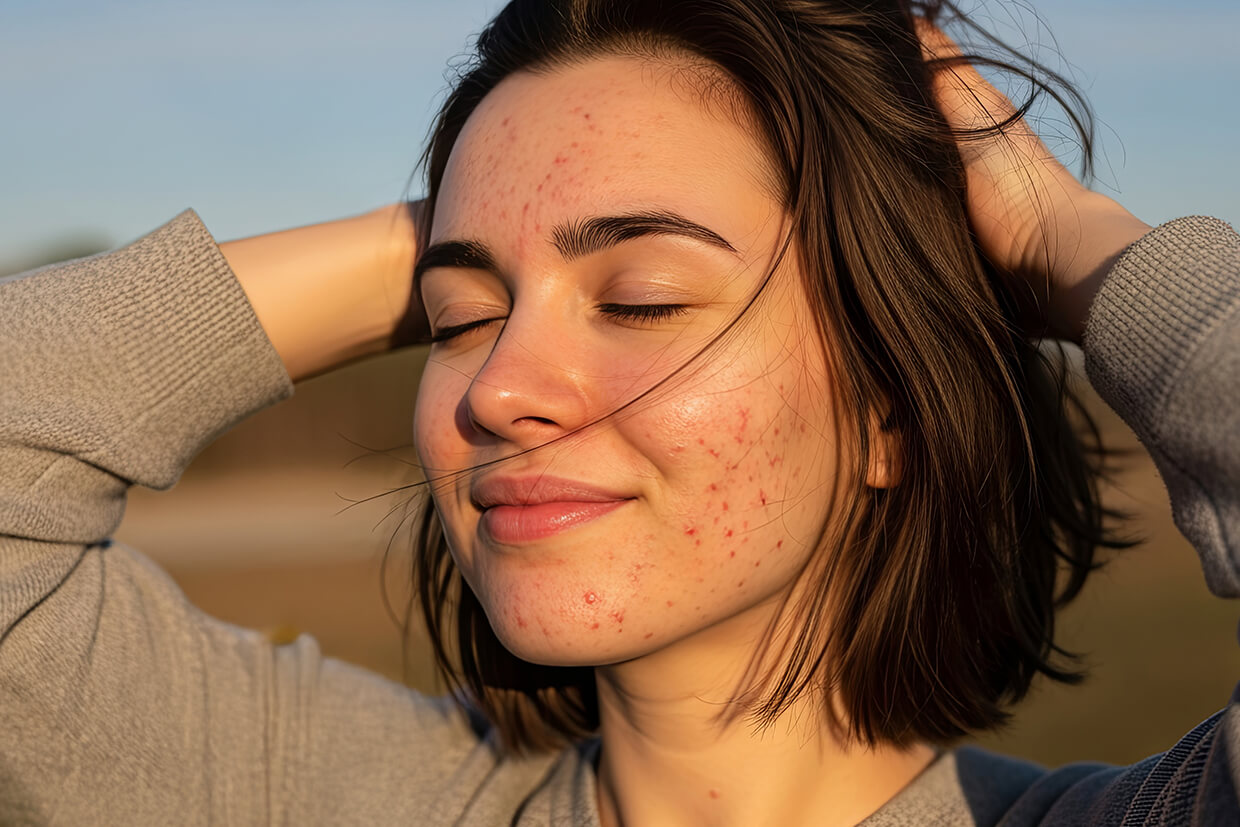What is acne?

Acne is a common skin condition that often begins around puberty and can continue into adulthood. It occurs when hair follicles on the face, back, chest, or other areas become blocked with oil and bacteria, leading to inflammation and breakouts. Hormonal changes during puberty, the menstrual cycle, or stress can also influence acne.
How acne is classified
Doctors usually assess acne by its type and severity.
Mild acne: small numbers of blackheads or pimples that are manageable with non-prescription products.
Moderate acne: more noticeable inflammation or pimples that may cause some scarring if left untreated.
Severe acne: extensive or cystic breakouts that often require specialist care and prescription treatments.
Accurate assessment helps determine the most appropriate management plan.
What treatments are available?
There are many approaches that can help manage acne. Non-prescription products such as gentle cleansers or formulations containing benzoyl peroxide or salicylic acid are available from pharmacies and supermarkets.
For moderate or persistent acne, a doctor may discuss topical or oral prescription treatments. These can include retinoid-based creams, certain antibiotics, or hormonal therapy, depending on the individual and clinical presentation.
Some stronger medicines, such as isotretinoin, are only prescribed under specialist supervision (for example, by a dermatologist). It’s important that treatment is tailored by a healthcare professional, as everyone’s skin and triggers are different.
When to see a doctor or dermatologist
If your acne is causing scarring, not responding to over-the-counter treatments, or affecting your confidence, it’s a good idea to speak with a GP. For severe or treatment-resistant acne, a GP may refer you to a dermatologist for specialist management.
What else can I do to control my acne?
Simple measures can have a big impact, especially for milder cases.
• Wash acne areas gently. Avoid vigorous scrubbing and abrasive cleansers - these can cause more inflammation and make acne worse
• Avoid using toners and oil-based moisturisers
• Do not squeeze or pick the acne lesions as this increases the risk of scarring
• Eat a healthy balanced diet. While there is no relationship between particular foods and acne, if you find certain foods seem to make your skin worse it’s best to avoid these
• Choose water based, oil-free makeup and remove before going to bed at night
• Keep your hair clean and off your face to avoid excess oil
Everyday skin habits
Simple measures may support healthy skin alongside medical treatment:
• Wash affected areas gently, avoid harsh scrubbing or abrasive cleansers
• Choose non-comedogenic (oil-free) skincare and makeup
• Avoid picking or squeezing blemishes to reduce scarring risk
• Keep hair clean and away from the face
• Maintain a balanced diet and note if certain foods appear to trigger flare-ups
Acne can be frustrating, but it’s also very common, and effective help is available. With the right combination of medical advice, consistent skincare habits and patience, most people see significant improvement over time.
If your acne is affecting your confidence or not improving with self-care, talk to your GP about next steps. Early support can help reduce inflammation, prevent scarring and improve your skin health overall.
References
Dermnetnz.org. https://dermnetnz.org/topics/acne. Published 2022.
Huang T, Krassas G, Cook D. Acne Best practice management. Australian Family Physician. https://www.racgp.org.au/afp/2010/september/acne-best-practice-management. Published 2010
Disclaimer: This information is not intended to be used as medical advice or a substitute for your own practitioner’s advice, nor is it intended to be used for diagnosis or treatment for any illness/disease.




